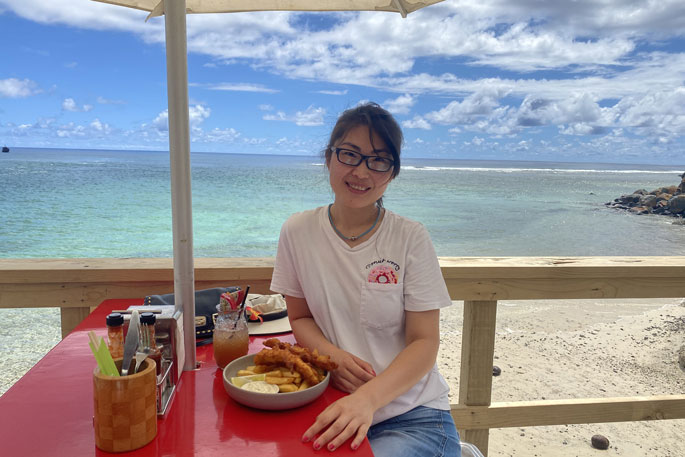Jing Li quit a secure job as a Beijing physician to bring her young family to New Zealand.
She had swapped Beijing for the New Zealand lifestyle, and once her youngest daughter entered kindergarten at the age of three, Jing’s next focus was on returning to the health profession.
She landed in New Zealand in 2018 with only a few words of English, but through work experience and study, her confidence with the language grew.
This newfound confidence has helped her successfully complete an Apprenticeship in Advanced Care and Support with Careerforce |Te Pūkenga and now gain conditional acceptance into a nursing degree with Toi-Ohomai, also a division of Te Pūkenga.
When she arrived in New Zealand, Jing dedicated her spare time to improving her English. Once the opportunity arose, she jumped at the chance to become a caregiver at a local nursing home. For Jing, it was a foot in the door to the health workforce, and a way to further improve her English. This then led her to secure a Healthcare Assistant role at the Radius Care Matamata Country Lodge Care Home and who enrolled Jing into the Apprenticeship in Advanced Care and Support.
The programme was ideal for her Healthcare Assistant role which involved providing care and support for residents with complex needs, such as stroke and dementia. The role involved providing personal care, emotional support, following care plans and observation charts, and assisting with eating and drinking, moving and handling.
“With my medical background and knowledge, I knew how to support the lives of the elderly, and I could translate the knowledge into practice through study and work.”
The Apprenticeship in Advanced Care and Support is the first formal qualification Jing has completed in New Zealand. She credits Careerforce Apprenticeship Advisor, Alyssia Paekau with being a great source of motivation and encouragement to her throughout her apprenticeship journey.
Alyssia is one of a team of Careerforce Apprenticeship Advisors across Aotearoa who provide one-on-one pastoral care, coaching and other support to help apprentices complete their qualification, achieved fully on-the-job.
“She encouraged me and helped me to make study plans,” says Jing.
“I didn't feel that learning was hard. It was more like a summary of my work. However, there were more difficult modules, such as dementia.”
Jing says she really enjoyed the learning process, and especially the self-reflection, and learning about Māori culture.
“The online and on-job learning aspects of the apprenticeship programme are very effective. You can control the pace yourself, you can study anytime, but it does require a certain degree of independent learning and self-motivation.
“If you encounter problems, your Careerforce Advisor and your colleagues will help and guide you. It’s a very good way to learn, and immediately apply what you learn in the workplace.
Jing also highlighted the importance of having a supportive employer, commenting that “the Facility Manager, Darrell Shaw and Clinical Team Leader, Anne Judge at Matamata Country Lodge were very supportive.”
Jing says that there are still challenges because English is not her first language. However, through the Careerforce Level 4 apprenticeship and the work experience, she has so much more confidence now.
Since obtaining her resident visa, Rotorua based Jing has now received a conditional offer to study the Bachelor of Nursing programme with Toi-Ohomai, also a division of Te Pūkenga, setting Jing well on track to achieving her goals. She starts the nursing programme next year and has also received a conditional offer to complete an MPH (Master of Public Health) programme at the University of Auckland.
Rod Bentham, Executive Director of Careerforce | Te Pūkenga commented that “Jing is a great example of the career pathways available through the Te Pūkenga network, and supporting Jing’s progression from healthcare assistant through to registered nursing. New Zealand is desperately short of nurses, and the opportunity for care and support kaimahi to progress from practical [earn as you learn] work-based learning into degree nursing programmes is one that we must harness.”



0 comments
Leave a Comment
You must be logged in to make a comment.